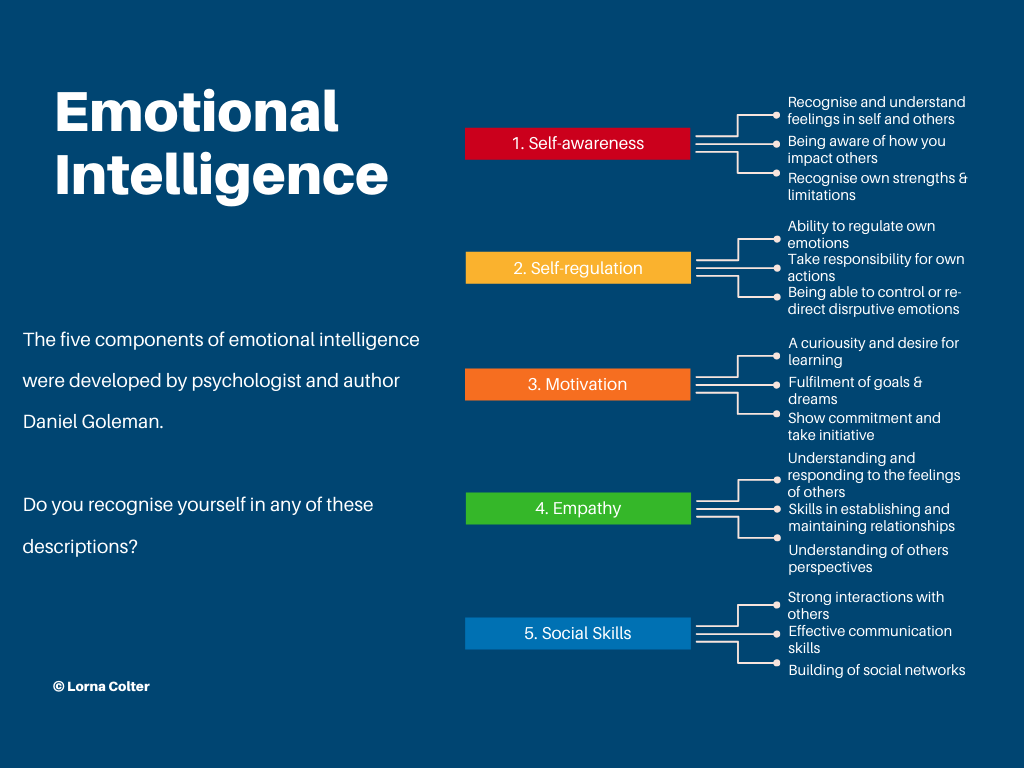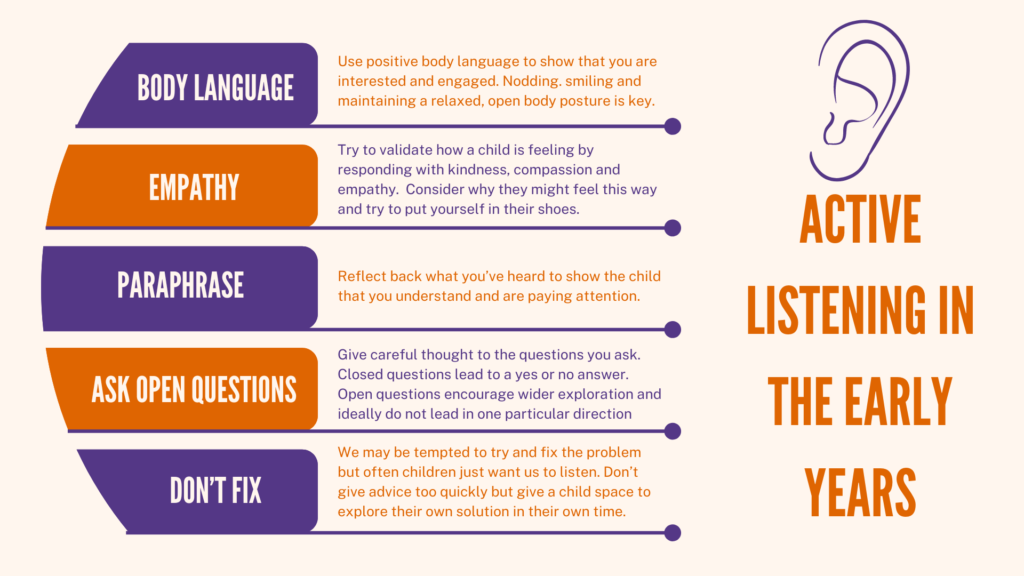The key to being able to support the emotional wellbeing and mental health of children is the ability to build a strong, trusting relationship. Certain skills are needed to help establish and maintain this relationship and so that a child feels heard and understood. This sprint gives you some time to reflect on your own skillset and think about areas where you would like to develop. Learning the skills you need to communicate effectively with children and their families will make a big impact on how much support you are able to offer. .
If we are to support others, we need to have a high level of self-awareness and take time to consider our own emotional intelligence. Daniel Goleman identified five elements of emotional intelligence:


Stop and Reflect:
Consider the five components of emotional intelligence. How do you rate yourself on each of these? Rate them 1-5 with 1 being the area where you feel least competent and 5 where you are most confident.
How might you build skills in the area of emotional intelligence that you struggle with the most?
Listening
It’s easy to define ourselves as a good listener but then actually spend a lot of the time thinking about what we are going to say next, rather than actually listening to what the person is sharing. Children need adults in their lives who will truly listen. This in itself will help promote good mental health. Watch the video below and notice how easy it is to get it wrong!
Have a read of the following top tips to help you develop your active listening skills when working with children or families:

Image source: Lorna Colter

Stop and Reflect:
Why is it important to understand ourselves when we support others? Without a good understanding of ourselves, we cannot be aware of what we are bringing to our role and might find there are barriers to building effective relationships with those we are trying to support. It might be helpful to ask yourself the following questions:
- What motivates us to want to support others?
- What are our values?
- What might be the blocks or barriers to us being helpful?






